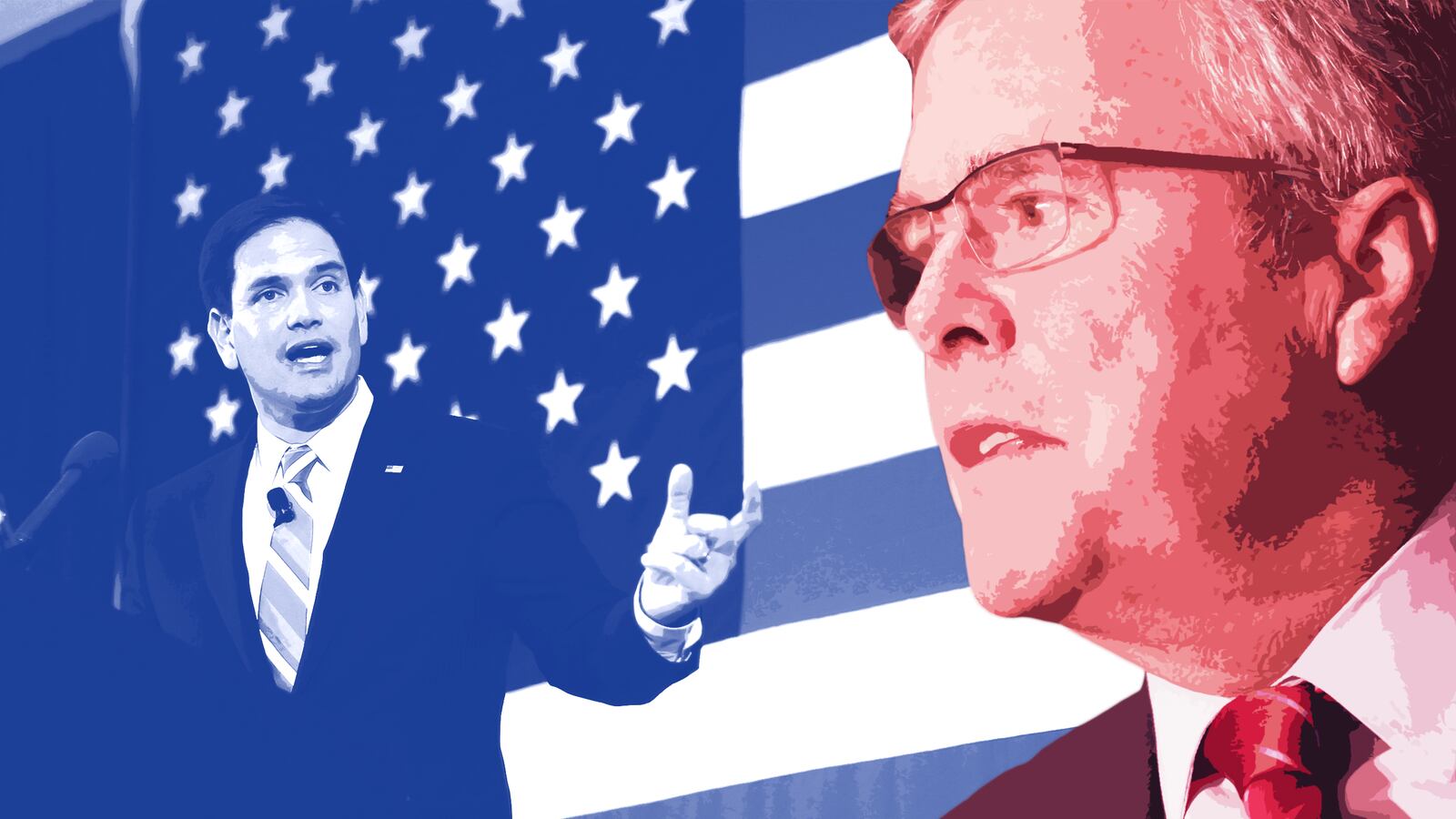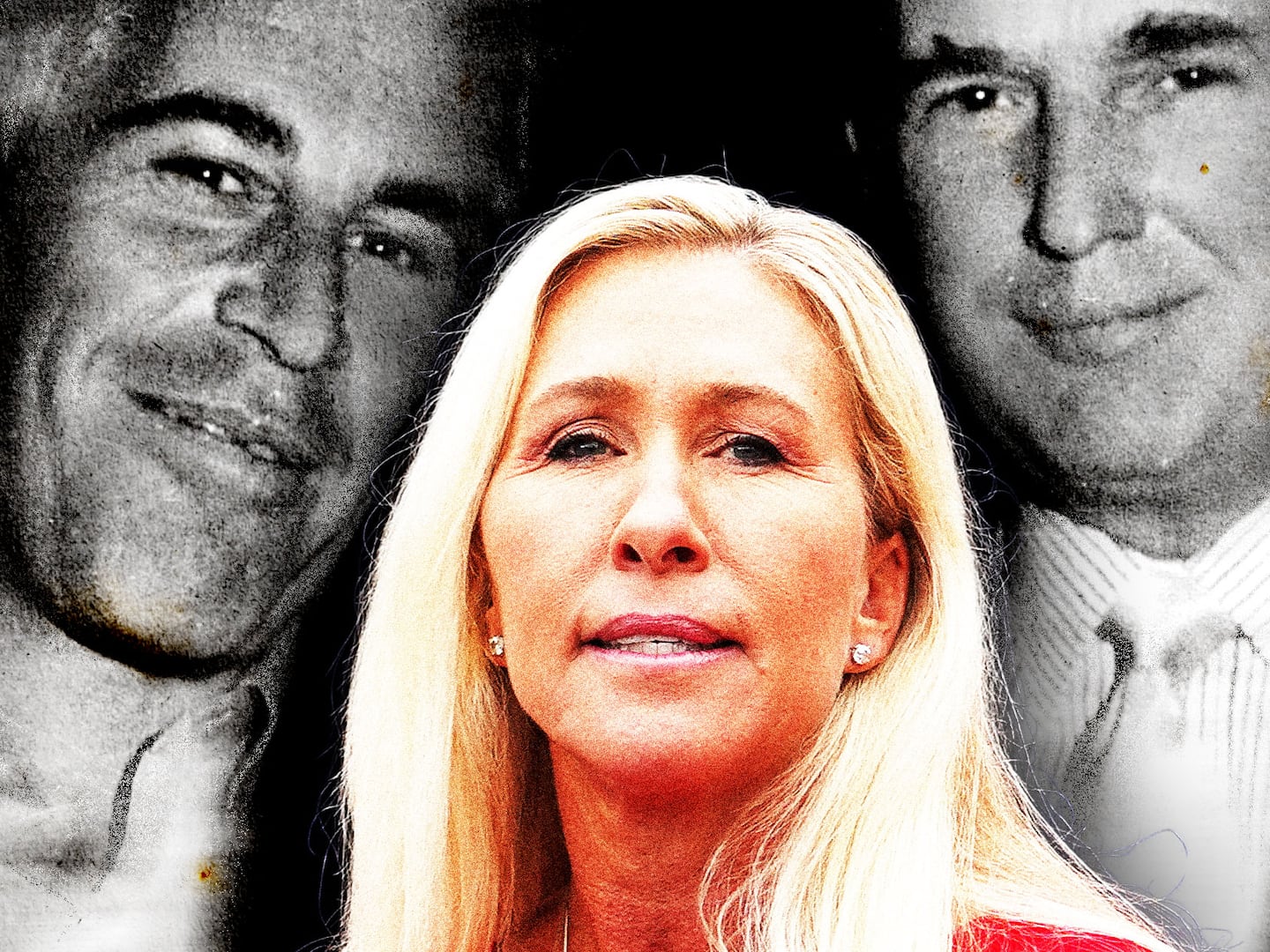What a delightful week, watching Republicans not Democrats sink in the foreign policy quicksand. For most of my adult lifetime—come to think of it, all of it, and pretty much all of my entire lifetime—to the extent that foreign policy has mattered in presidential campaigns, it’s been brandished by Republicans to accuse the Democrats of being soft on whatever the supposed threat was at the time. To think that we might have a presidential campaign in which the Democrats are the ones playing foreign policy offense, forcing the Republicans to profess that they are not war-mongering psychopaths, would be a thing to behold—as well as a measure, eight long years later, of how much damage George W. Bush and his co-belligerents did to the Republican Party.
It surely caught Jeb Bush by total surprise, the shitstorm that kicked up after his first answer about invading Iraq. Yes, he’s rustier than a 1970s Plymouth; yes, he appears not to have been really quite listening to Megyn Kelly; and yes, it’s beginning to dawn on all of us, God help us, that Dubya may have been the smart one.
But all those factors are subordinate to the main one, which is this: History instructs that if you’re a Republican running for president and you’re asked about a war, you probably can’t go wrong by saying you’re for it. A past war, a current war, a future war (perhaps these most of all!), it doesn’t matter. Be pro-war, accuse the Democrats of wanting the United States to suckle at the teat of the UN and the new global order; and if it’s a current war that’s not going swimmingly, blame the Democrats and the anti-war elements at home. These are can’t lose propositions.
Or were. This week, Bush learned otherwise. I know, specifically it had to do with the “knowing what we know now” language, which is what really cranked up the media’s chainsaw. But public anti-war sentiment is even more blunt than that. Here for example is a question from a Quinnipiac poll last summer: “Do you think the result of the Iraq War was worth the loss of American lives and other costs of attacking Iraq, or not?” This does not say “knowing what we know now,” which would clearly prod the respondent to think, “Oh, yeah, no WMD,” and would be more likely to produce a higher “not worth it” result.
But even keeping the WMD lie out of the conversation, not worth it won by 75-18 percent. Even Republicans said not worth it by 63-27.
It has created a new and perhaps not un- but let’s say little-precedented default foreign policy position in the American electorate: Now, the cowboys have to prove their solution to every problem isn’t to invade it or bomb it. This may have been true for the 1976 election, during the Vietnam hangover. But even if so, concerns about Vietnam were a distant second to unease about Richard Nixon’s rape of the Constitution and Gerry Ford’s pardon of him for doing it. Today, though, this question of reflexive Iraq hawkery is enough of a no-no that some people think Bush might already be sunk and should just quit now.
And this is why we saw Marco Rubio also reverse himself last week (although he would deny that) on the Iraq War. He used to defend the war, but now, with the new Kelly Standard in play, he decided he’d better come out and say: “Not only would I not have been in favor of it, President [George W.] Bush wouldn't have been in favor of it and he said so.”
Rubio, of course, has neo-conned himself to the gills, and there will be plenty of time for him during this primary season to come out swinging on Iran, once he figures out that Iran and ISIS are not allies. But that even he “clarified” his position in the anti-war direction says something.
Now I should note: It may not play out the way I’m describing during the primary campaign. Yes, as we saw above, rank-and-file Republicans said the Iraq War wasn’t worth it by 63-27. But in the context of a primary season, that 27 can be as loud as or louder than the 63. It’s probably the 27 who are more likely to vote or attend caucuses, which means the minority would have inordinate influence over the shape of the candidates’ rhetoric.
But in a general-election context, the GOP nominee will probably have to tack back pretty quickly toward the anti-war position. This will give Hillary Clinton a great opportunity. For one thing, it’ll weaken the salience of the whole “she can’t defend the country cuz she’s a girl” line of attack, which will come, however subtly. It will allow Clinton to define the terms of what constitutes a sensible foreign policy, and the Republican man will likely have to agree with her.
And most of all it will be a lot better for the world than if the situation were reversed. Contrary to liberals’ deepest suspicions about her, she is not a neo-conservative; she is not going to have regime change in Iran on her mind, which any of the Republicans as president would, except for Rand Paul.
Poor Republicans! Crime is down; they can’t scream law and order. And now war is unpopular, so they can’t say the Democrats are soft on whomever. Their economic theories are increasingly discredited. I guess that leaves the old standby: race-baiting. But we may have reached a point where that doesn’t work anymore either. Should be an interesting race.






